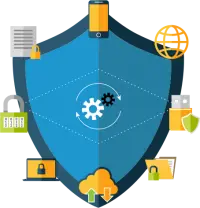
Business Data Protection
Ensuring your business survives any disaster threat
Everyone knows the importance of protecting their data. What many don’t realize is that while the chances of a major disaster might seem quite remote, the majority of data loss is the result of small, localized problems such as hard drive crashes, lightening strikes, theft, or accidental employee deletion.

